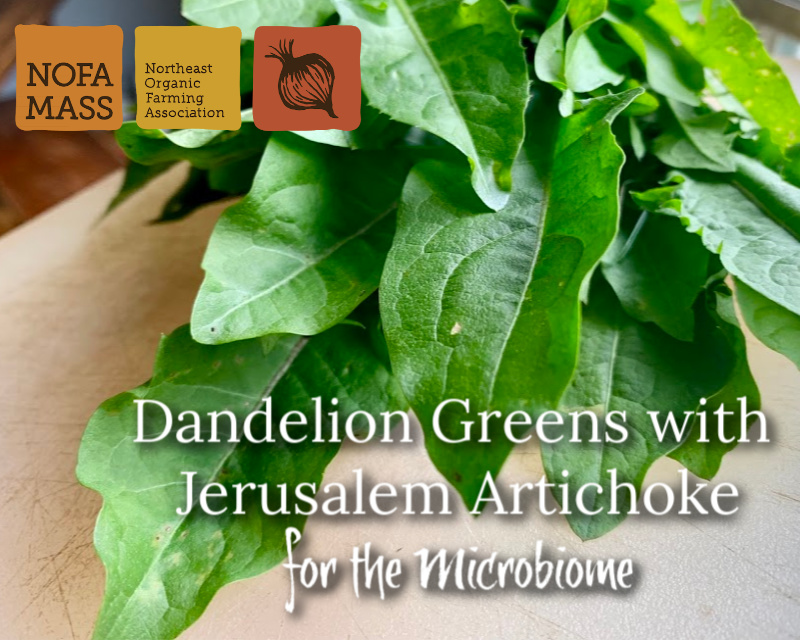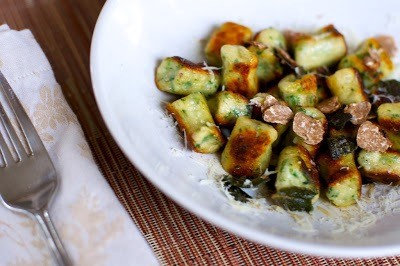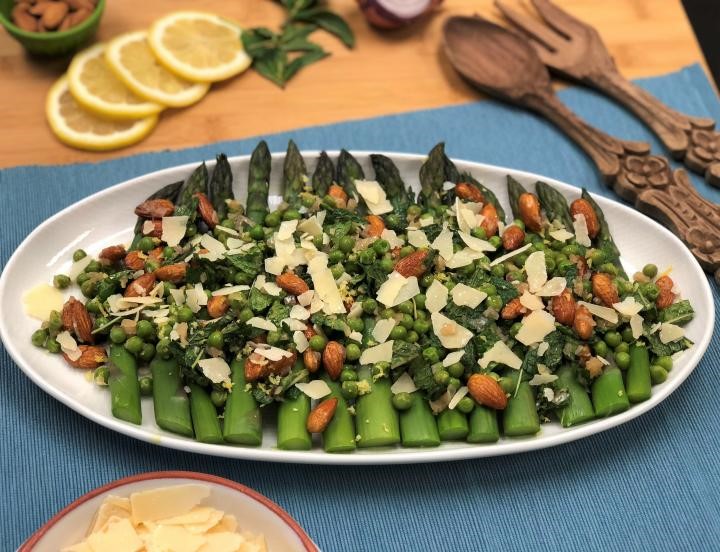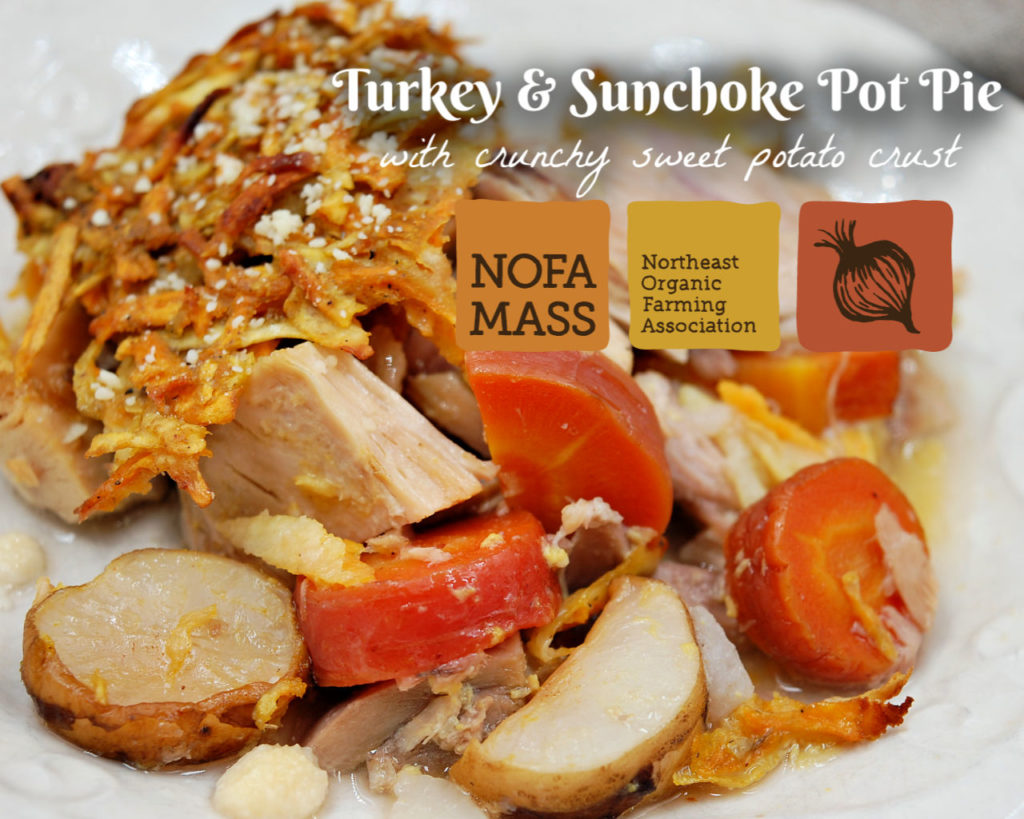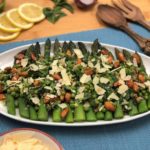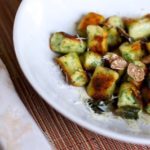Dandelion Greens with Jerusalem Artichoke for the Microbiome
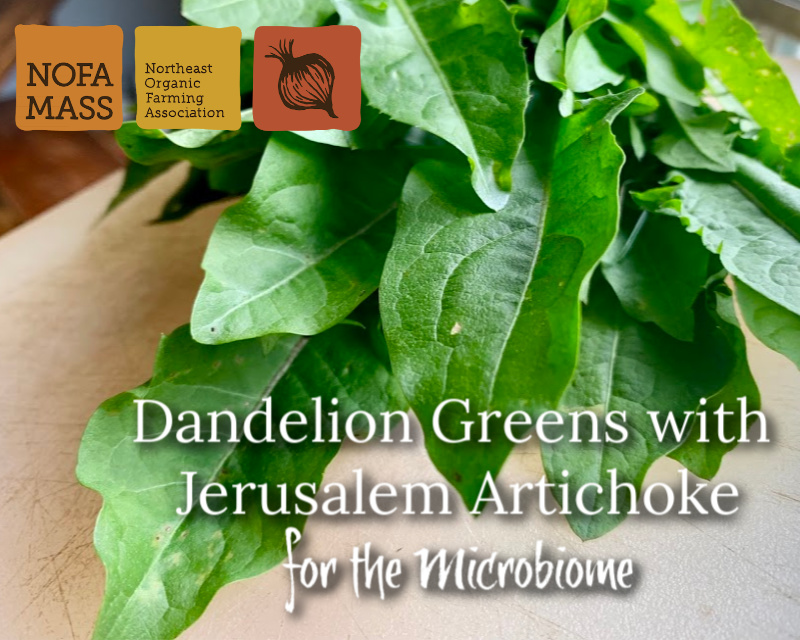
F.O.O.D. Focus on the Organic Difference
vol. 16 June 7, 2019
Profile and recipe from Ana Maria Moise, MS, CNS, LDN
Compiled by Christy Bassett for The Organic Food Guide and NOFA/Mass
Ana Maria Moise is a clinical nutritionist with expertise in functional foods as preventative and therapeutic medicine. She counsels patients on dietary strategies for treating gastrointestinal disorders, eating disorders, metabolic disorders, heart disease, autoimmune conditions, and other chronic illnesses.
She is the author of The Gut Microbiome: Exploring the Connection between Microbes, Diet, and Health, published in 2017. She is committed to translating current medical research, making it more accessible to the general public. She leads workshops on nutrition and gastrointestinal health, plant-based diets, and a mindful eating approach to weight management.
She practices at 52 Center Street in Northampton, MA and 306 High Street in Greenfield, MA.
Find more information at www.AnaMariaMoise.com or register to attend her NOFA/Mass event “Cultivate a Healthy Microbiome” on June 13, 2019.

What is your interest/career in the food system?
Practicing nutrition in a clinical setting provides a wonderful opportunity to integrate knowledge of local nutrient-dense foods. The modern diet is often devoid of biodiversity. Incorporating more complex plant foods in the diet improves health and promotes longevity. My fascination with local and specifically indigenous plant foods stems from the understanding that whole plants promote gut health and, in turn, helps prevent disease. Increasing our diversity of whole plant foods, as we see in more traditional diets, supports the diversity of microbes living within the gut. These gut microbes are a key component to managing inflammation in the body and reducing the risk of chronic disease.
Why do you love local, organic food?
When I moved to Western Massachusetts, I quickly developed an interest in indigenous cultures and medical anthropology. As I learned about chronic diseases typically seen only in modern Western cultures, I became interested in the role of diet and lifestyle in the development of these so called “diseases of civilization”. Traditional cultures that subsist on locally grown foods tend to have much lower rates of metabolic diseases like obesity and type 2 diabetes, autoimmune disorders, heart disease, cancer as well as neurodegenerative diseases like Alzheimers and Parkinson’s. Research points to the importance of local plant foods within these traditional diets because they contain complex carbohydrates that serve as prebiotics – foods that feed our probiotic microbes. The modern Western diet is lacking in diversity of complex plant foods and researchers believe this is starving gut microbes, lowering their diversity, and thus promoting a disease-state within the body. Integrating local produce and increasing the variety of local plants in one’s diet is a wonderful way to increase prebiotics and improve gut health.
Are there any native local foods that you recommend for promoting gut health?
Prebiotics are found in a variety of whole plant foods including beans, legumes, onion, garlic, dandelion greens, as well as tubers like jicama and Jerusalem artichoke. Tubers are underground vegetables that are still seen as stables in modern-day hunter-gatherer diets. The Jerusalem artichoke, or Sunchoke, is a native North American tuber and was part of the indigenous diet.
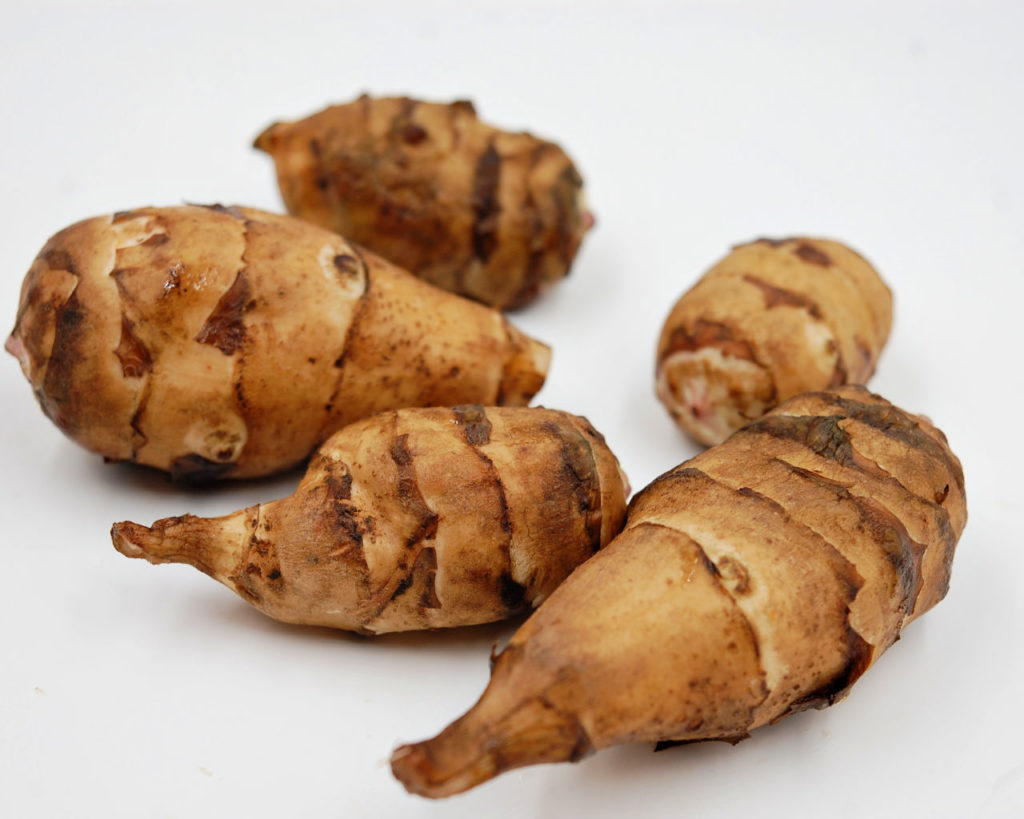
Dandelion greens with Jerusalem Artichoke for the Microbiome
Ingredients
- 2 cups organic dandelion greens
- 1 medium organic Jerusalem artichoke
- 1 medium organic radish
- 1 Tbs chopped organic green onion
- 1 Tbs chopped organic green garlic
- ¼ cup organic bean sprouts
- Salad dressing of choice
Directions
Rinse and chop all vegetables. Toss and enjoy!

